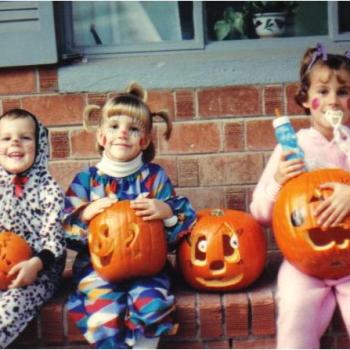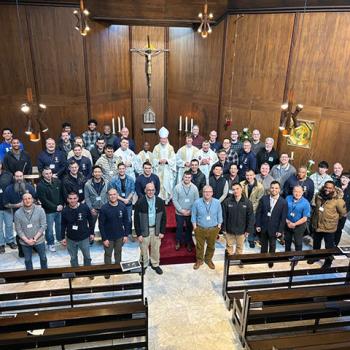But the mind preoccupied with its own ideas and filled with preconceptions and ready-made decisions, with narrow notions about what is and what is not, will often be blind to realities that are obviously and immediately present. I am convinced—and experience has repeatedly confirmed my conviction—that true certainty comes, not from mental system-spinning, but from learning to identify and trust those feelings and insights that are worthy of trust.
Though Bruce does not explicitly draw it out, there is a contradiction lurking here around the notion of doubt. On the one hand, the essay suggests, in order to experience faith and love we must free ourselves from the emotional cul-de-sac of obsessive self-doubt and self-reproach, which is actually a form of complacent (and false) certainty about our deepest natures. On the other hand, we must undertake a project of radical doubt to dislodge the superstructure of rigid expectation that trains our perceptions along too-familiar byways. Is doubt the enemy or the ally of faith and love?
One way to resolve the contradiction is to frame it not as a question of doubt but of our attachment to the things our minds makes: wishes, hopes, fantasies, fears, expectations. While these bright mental objects are basic by-products of consciousness, we must be willing to let them go—or vigorously cut them loose, if necessary—before they harden into the bars of a mental prison that keeps us from grasping the unexpected gifts of the outside world. This can be difficult for those of us who choose a life's work in making things with our minds. But Bruce testifies to the rewards that ensue:
Marriage daily reminds me that faith is the power to see, to choose, to act, and to enjoy, and that it requires an abandonment of narrow certainties, preconceptions, defenses, and fears. . . . I continue to see, as I experience married life, how easy it is—through laziness or fear—to resist whatever my own mind does not make, whatever is offered from the outside, to resist happiness, to reject the feast of joy laid before me by insisting that my dark fantasies are real or by failing to act, as I must, to help turn my brighter beliefs into realities. I have seen, in my own life and that of others, how substantial that feast of joy can be when it is willingly accepted.
I have been fortunate to learn this lesson from several teachers during my adulthood. I will no doubt have to learn it again, probably this afternoon. Bruce's essay was one of those teachers, a small miracle in my life.





